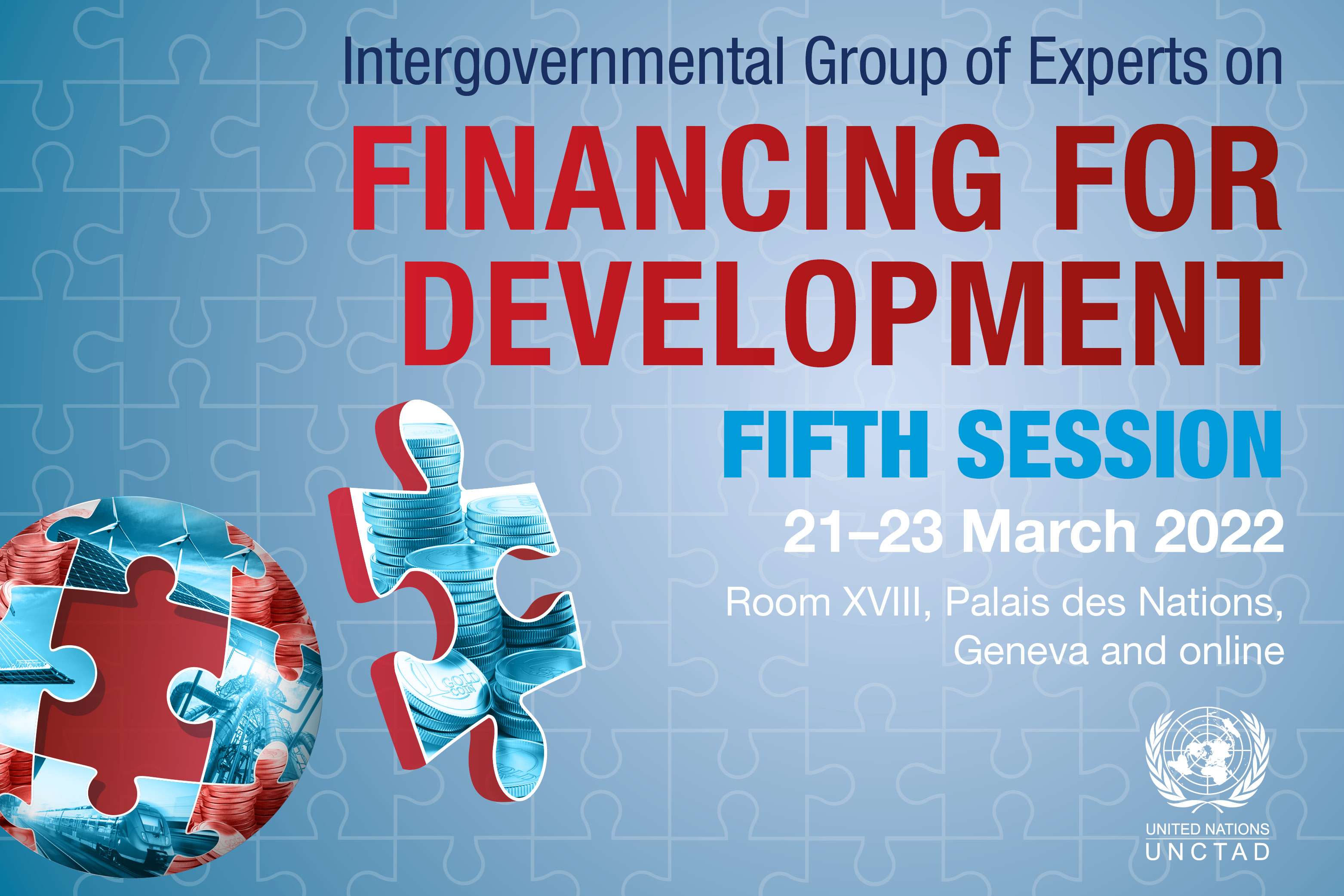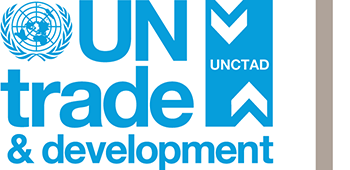
Intergovernmental Group of Experts on Financing for Development, fifth session
Developing countries are facing unique and unprecedented challenges. The Covid-19 pandemic has triggered combined health, economic and financial crises that have worsened developing countries' prospects of growth, deteriorated debt indicators and increased the development finance gaps to achieve the SDGs. The pandemic also has laid bare the global inequalities between the developed and the developing world, as developing countries had less fiscal space to support their citizens during the pandemic and limited access to emergence liquidity provision.
From 21st to 23rd March, experts and delegates gathered to discuss lessons from the COVID-19 pandemic concerning the provision of financing for development. The discussion over three days demonstrated that promoting socio-economic development entails a holistic approach. Apart from scaling up development finance from domestic and international sources, the international community needs to address the following macroeconomic issues:
We need to rethink the international financial architecture
Mr. Abdulla Shahid (President of the General Assembly), pointed out that many developing countries are being forced to allocate scarce resources to meet creditor claims at the expense of financing the SDGs. Although the G20 DSSI was a welcome initiative to alleviate debt burdens, it remained inadequate in scale, and it was discontinued when most needed. The Covid-19 crisis has shown that we need to rethink debt burdens in developing countries and make debt work for development.
Bearing these problems in mind, UNCTAD has developed the Sustainable Development Finance Assessment (SDFA), a framework that assesses countries’ external and public sector financial needs against investment requirements arising from the most essential SDGs, and against the need to achieve or maintain external debt sustainability.
It is vital to strengthen systems and processes that enhance responsible sovereign lending and borrowing to prevent further accumulation of unsustainable debt in developing countries. Our project Revitalising soft-law frameworks for responsible sovereign lending and borrowing explores how the soft-law framework for sovereign lenders and borrowers can be effectively implemented.
We need to reform the Global Financial Safety Net (GFSN)
The financial response to Covid-19 was indeed unprecedented, as the IMF's largest SDR allocation–USD 650 billion – and the establishment of a number of new currency swap agreements show. However, experts in the 5th IGE FfD showed that this response was late and skewed away from the pressing needs of developing countries. Among the 190 IMF member countries, 40 developed countries received 63% of the new allocation of SDRs. Swap agreements, which today represent the most relevant source of short-term liquidity provision, is available to 94% of high-income advanced economies, while 17% of middle-income developing countries benefit from swap agreements (as of January 2022). Low-income developing countries are completely excluded from swap agreements. The presentations from Mr. Nanayakkara (Deputy Governor Central Bank of Sri Lanka) (read here), Prof. Fritz (Freie University Berlin) (read here), and Mark Plant (CGD-Europe /Center for Global Development) provided evidence that the current design of the GFSN falls short of the needs of developing countries and need urgent reform. The GFSN coverage for all UN member states is available at the GFSN tracker.
We need early warnings systems and be prepared for challenges ahead
As several IGE experts showed, the COVID-19 shock affected the financial conditions in developing countries through many transmission channels, including capital outflows, plunges in commodity prices and currency depreciation. The pandemic highlights the need to monitor financial conditions in developing countries in order to provide warning signals of “financial stress” before it has adverse effects on the real economy. Bearing these needs in mind, UNCTAD has developed a new generation of the Financial Condition Indicators (FCI), encompassing 53 developing countries.
Moreover, changes in the global macroeconomic landscape, like the global crisis triggered by the COVID-19 shock, impacts the economic performance of developing countries and their options for effective economic policy design. UNCTAD also has updated its Global Policy Model (GPM), which provides scenarios to guide the formulation of economic policies. Hence, developing countries can be better prepared to the challenges ahead.
All evidence indicates that developing countries’ future challenges are enormous. On the one hand, the environmental crisis is already a reality and states urgently need to scale up finance to invest in green industries, technologies and infrastructure, as presented by Ms Gabor (UWE Bristol) (read here). On the other hand, the conflict in Ukraine and the monetary tightening by developed countries can once again generate a dangerous effect on developing countries' economies.
